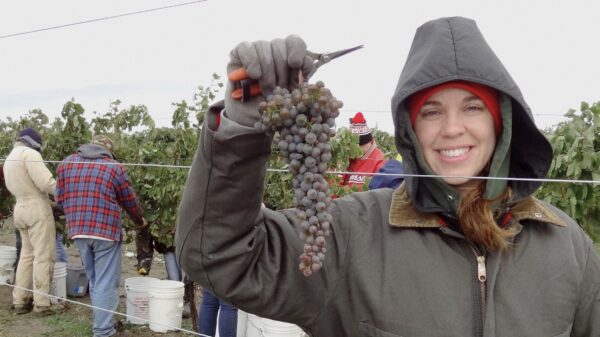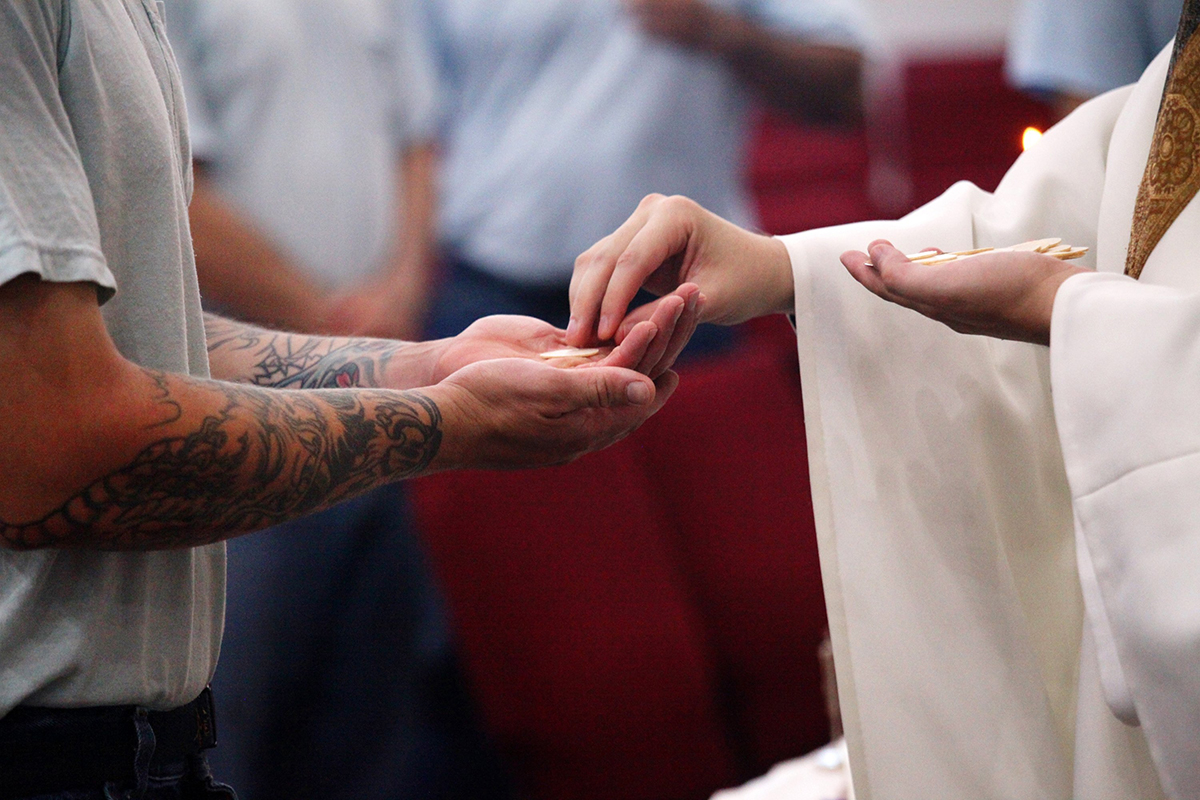(OSV News) — “For the Lord hears the needy and does not despise his own people who are prisoners,” the psalmist says, and these words resonate with Catholics who take these words literally performing the vital service of prison ministry.
They are giving back hope and faith to those men and women convicted of heinous crimes, who too often, are stigmatized and forgotten by society in general and even their own families.
“It’s not an optional thing (prison ministry),” Msgr. Stuart Swetland, president of Donnelly College in Kansas City, Kansas, told OSV News, referencing Christ’s words about the final judgment in Matthew 25:31-46: “I was naked and you clothed me, I was sick and you visited me, I was in prison and you came to me.”
“Any Catholic or Christian person should see in an incarcerated person Christ’s presence, waiting to be visited,” he said.
Msgr. Swetland has seen firsthand the difference a college education makes in a prisoner’s life. Donnelly College is widely known and respected for how its branch campus at Kansas’ Lansing Correctional Facility has provided a college education to imprisoned people, leading to graduation with an associate’s degree.
Donnelly College, Msgr. Swetland said, “provides the professors to teach the courses at Lansing which we also provide here … ours is a full-credit, two-year, associate’s degree program.”
More than 370 inmates have taken courses since the program started at Lansing in 2001. Approximately 28 inmates have earned an associate degree, and 202 former students of the program have been released from prison.
“We serve those who might otherwise not be served, and we have maintained a tremendous success rate,” he said. “Less than 2% of our graduates commit a crime and return to prison.”
The statistic is impressive. According to the National Institute of Justice, 68% of inmates are convicted of a new crime within three years of their initial release in the U.S.
This May, seven incarcerated students are anticipated to graduate.
“One of my greatest joys is to attend a graduation ceremony and give out diplomas,” the priest said.
Msgr. Swetland said the Catholic Church excels in both “religious formation and holistic (educational) formation.”
“Ours is a ministry of presence, one that emphasizes the importance of them talking face to face with us,” he said. “They need friendship and someone who listens — all of the things that you and I need.”
In the Diocese of Nashville, Tennessee, Deacon W. James Booth ministers to men and women at several prisons in Middle Tennessee. The deacon told OSV News he began doing prison ministry by his own request at the long-closed Charles Bass State Prison, while in formation for diaconate.
“My ministry involves visiting groups of prisoners weekly at these places, and I also address the broader spectrum of other Catholics who are interested in joining it,” added Deacon Booth.
One of the challenges of his ministry, Booth said, “is to prepare (help) prospective volunteers for our ministry by having them overcome the prejudices that people have about prison inmates.”
“This also means showing others that these inmates are equal in the eyes of God, and thereby they deserve a second chance,” he said. “Getting to spend time with them — and especially those sitting on death row — is the highlight of my week.”
“We read Scripture, we pray together and we benefit immensely from our conversations face to face,” Booth said, while also addressing the emotional toll of incarceration on his charges.
“Those inmates who are in prison for an extended length of time have lost their families as their visitors,and therefore we speak about the promise of God’s forgiveness, and the patterns of behavior that define us,” he said. “In short, there is no better ‘cure’ for this isolation than companionship.”
Deacon Booth said, “There are no fights among the people we visit, because they know that they ‘messed up’ and they want to change.”
Deacon Booth said prison ministry has to be sensitive to the trauma and loss prisoners are experiencing.
“There are also many male prisoners with family — including children — on the outside. Given this fact, (the feeling of) loss and separation from the family is not uncommon,” he said.
“That said, I think women prisoners voice their loss more,” he said. “The experience of having been raped or sexually assaulted before coming to prison is more common among women prisoners.”
Deacon Booth said volunteers in prison ministry, particularly men, “need always to be mindful of these experiences and of the enduring trauma that they create.”
As for his work with death-row inmates, Booth expressed equally sobering thoughts.
“On the surface at least, there is a ‘matter of factness ‘ about an (impending) execution,” he said, saying people on death row have “lived with the prospect of certain death before them for years or decades.”
“As mortals, all of us face that prospect, but death-row prisoners have it constantly and explicitly in their daily lives,” he said.
Deacon James Dalton, who serves St. Jude Catholic Church in Louisa, Kentucky, visits Big Sandy, the U.S. Penitentiary in Martin County, once a week.
Situated in eastern Kentucky, Big Sandy has the most employees of any institution in the economically depressed area.
Deacon Dalton described Big Sandy as “a very tightly controlled facility; one with three cell blocks, but also 30 different kinds of gangs, including the ‘Crips’ and the ‘Bloods.'”
“It is, as one inmate told me just last week, a place where you (the convicts) have to watch your back all the time,” Deacon Dalton said, “but we try to teach them regardless of that fact, how to live a Christian life in a prison that is so violent.”
He added, “The guys I visit want Communion and they want to learn; we love to sit down and talk about religious subjects.”
Regardless of the violence, gangs, and lockdowns, Deacon Dalton said, “I try to give them hope, faith, and teach them how to live a Christian life.”
Robert Alan Glover writes for OSV News from Kentucky.











































